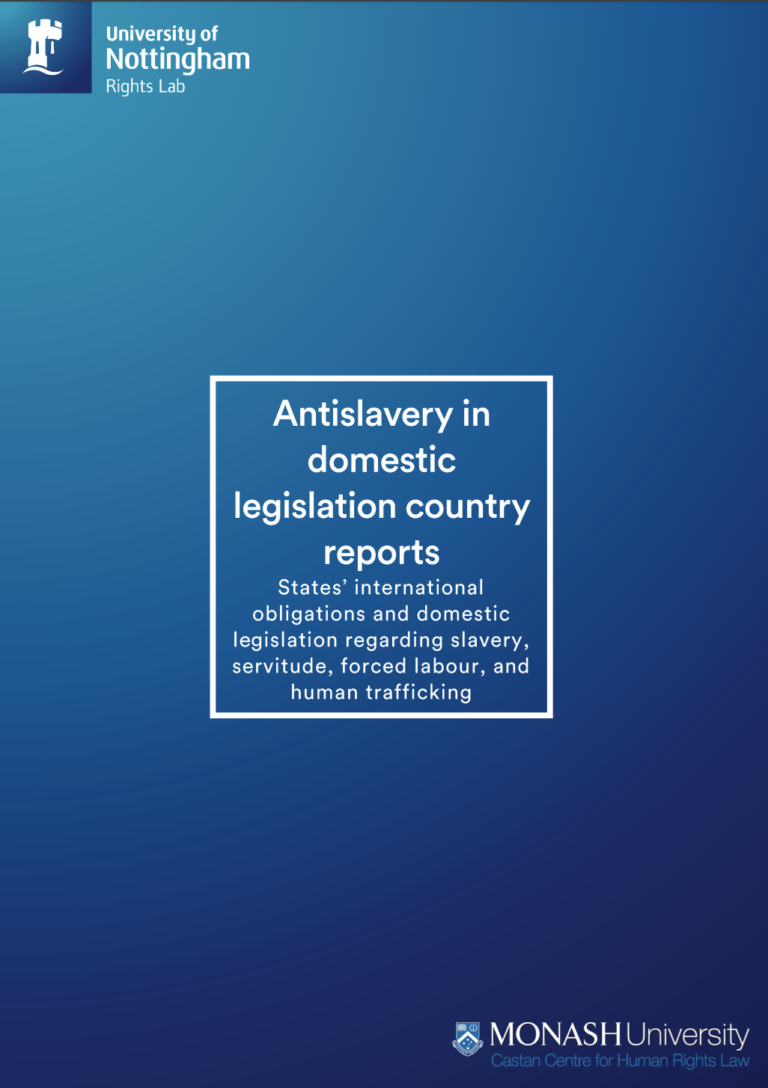Research and analysis conducted by Katarina Schwarz (University of Nottingham) and Jean Allain (Monash University).
To assess the extent to which slavery and related forms of human exploitation have been prohibited in domestic law, this project compiles the constitutional, criminal, and labour legislation of 193 UN Member States, drawing provisions dealing with slavery, servitude, institutions and practices similar to slavery, forced labour and human trafficking from the texts. Each Country Report sets out the international instruments to which the state is party, and the various international obligations with regard to human exploitation flowing from these undertakings. Each Report then provides analysis as to the extent to which each UN Member State has carried out its international obligations through the enactment of domestic legislation.
This research provides an understanding of the extent and scope of domestic legislation governing slavery and related exploitation. It highlights a significant implementation gap as regards international obligations undertaken and required by the 1926 and the 1956 Slavery Conventions, the 1930 Forced Labour Convention, and the 1966 International Covenant on Civil and Political Rights; and follow-through at the domestic level.

